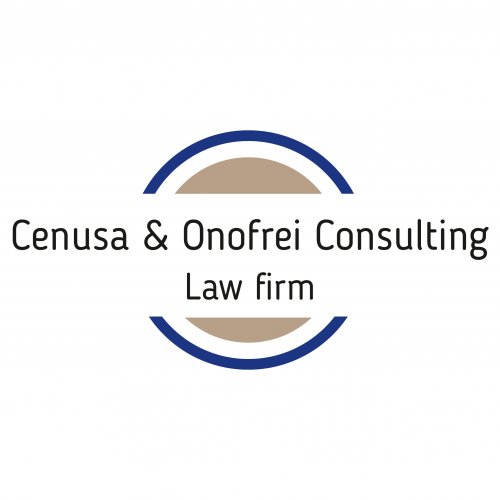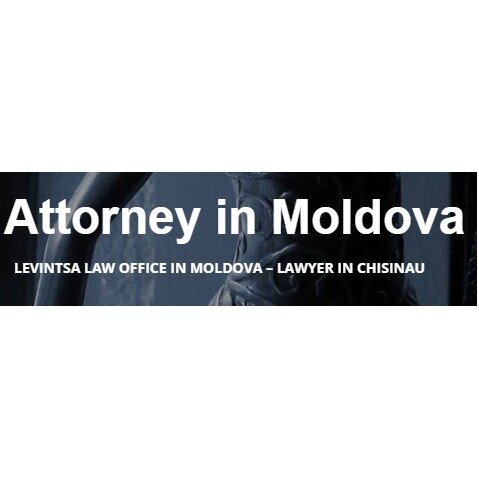Best Bankruptcy Lawyers in Chisinau
Share your needs with us, get contacted by law firms.
Free. Takes 2 min.
List of the best lawyers in Chisinau, Republic of Moldova
About Bankruptcy Law in Chisinau, Republic of Moldova
Bankruptcy law in Chisinau, Republic of Moldova, governs the process by which individuals or businesses who are unable to repay their debts can seek relief from their creditors. This legal process aims to provide a fresh start to debtors while ensuring that creditors are treated fairly.
Why You May Need a Lawyer
There are several situations where you may need a lawyer's assistance in bankruptcy proceedings. Some common reasons include understanding your rights and responsibilities, navigating complex legal procedures, negotiating with creditors, and representing you in court if necessary.
Local Laws Overview
In Chisinau, Republic of Moldova, bankruptcy proceedings are governed by the Law on Insolvency, which outlines the procedures for declaring bankruptcy, appointing a trustee to oversee the process, and distributing assets to creditors. It's essential to understand these laws and how they apply to your specific situation when considering bankruptcy.
Frequently Asked Questions
1. What is bankruptcy?
Bankruptcy is a legal process that allows individuals or businesses to seek relief from their debts when they are unable to repay them.
2. How do I know if bankruptcy is the right option for me?
If you are struggling to repay your debts and see no way out, it may be worth considering bankruptcy as an option. Consulting with a legal professional can help you assess your situation and explore all available options.
3. What are the different types of bankruptcy in Chisinau, Republic of Moldova?
The two main types of bankruptcy in Chisinau, Republic of Moldova, are liquidation bankruptcy (known as bankruptcy with assets) and reorganization bankruptcy (known as bankruptcy without assets). Each type has its own procedures and implications.
4. What happens during the bankruptcy process?
During the bankruptcy process, a trustee is appointed to oversee the proceedings, assets are evaluated, creditors are notified, and a plan for repaying debts is developed. The goal is to provide relief to debtors while ensuring fair treatment for creditors.
5. Will I lose all my assets if I declare bankruptcy?
Not necessarily. The outcome of bankruptcy proceedings depends on various factors, including the type of bankruptcy filed, the value of your assets, and the agreement reached with creditors. Consulting with a legal professional can help you understand your rights and options.
6. Can creditors continue to pursue me for debts after I declare bankruptcy?
In most cases, once you have successfully declared bankruptcy, creditors are legally required to cease collection efforts against you. However, there may be exceptions, and it's essential to understand your rights under the law.
7. How long does the bankruptcy process take?
The length of the bankruptcy process can vary depending on the complexity of the case and the type of bankruptcy filed. On average, bankruptcy proceedings in Chisinau, Republic of Moldova, can take several months to complete.
8. Will bankruptcy affect my credit score?
Yes, declaring bankruptcy can have a negative impact on your credit score, making it challenging to obtain credit in the future. However, it is possible to rebuild your credit over time with responsible financial management.
9. Can I file for bankruptcy without a lawyer?
While it is possible to file for bankruptcy without a lawyer, it is highly recommended to seek legal assistance to ensure that your rights are protected, and the process is handled correctly. A lawyer can provide valuable guidance and representation throughout the proceedings.
10. What are the consequences of not paying my debts?
If you fail to repay your debts, creditors may take legal action against you, potentially leading to wage garnishment, asset seizure, or other consequences. Declaring bankruptcy may be a way to address overwhelming debt and avoid such repercussions.
Additional Resources
For more information on bankruptcy in Chisinau, Republic of Moldova, you can contact the Ministry of Justice or seek assistance from a legal aid organization specializing in bankruptcy law. These resources can provide valuable information and support to individuals considering bankruptcy.
Next Steps
If you are considering bankruptcy or facing financial difficulties, it is advisable to consult with a qualified legal professional who can assess your situation and provide guidance on the best course of action. A lawyer can help you understand your rights, navigate the bankruptcy process, and work towards a fresh start free from overwhelming debt.
Lawzana helps you find the best lawyers and law firms in Chisinau through a curated and pre-screened list of qualified legal professionals. Our platform offers rankings and detailed profiles of attorneys and law firms, allowing you to compare based on practice areas, including Bankruptcy, experience, and client feedback.
Each profile includes a description of the firm's areas of practice, client reviews, team members and partners, year of establishment, spoken languages, office locations, contact information, social media presence, and any published articles or resources. Most firms on our platform speak English and are experienced in both local and international legal matters.
Get a quote from top-rated law firms in Chisinau, Republic of Moldova — quickly, securely, and without unnecessary hassle.
Disclaimer:
The information provided on this page is for general informational purposes only and does not constitute legal advice. While we strive to ensure the accuracy and relevance of the content, legal information may change over time, and interpretations of the law can vary. You should always consult with a qualified legal professional for advice specific to your situation.
We disclaim all liability for actions taken or not taken based on the content of this page. If you believe any information is incorrect or outdated, please contact us, and we will review and update it where appropriate.












